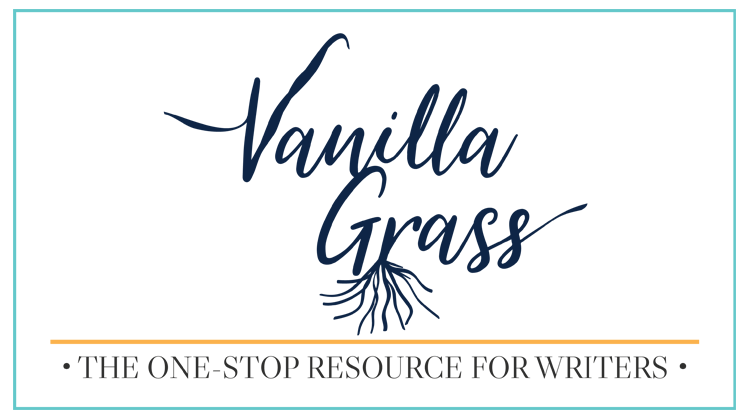Learn how to handle critiques and rejections with the elegance and decorum of a three-headed dog.
I wish I could tell you that the writing life is always beautiful like a crisp fall with cozy sweaters and unlimited hot chocolate-flavored praise. But there are often scorching, drought-filled summers of rejections and freezing, drab days of lingering effects from critiques.
If negative comments fail to affect us, then maybe we aren’t all-in enough to expose our hearts outside our chests.
But it’s okay if it hurts, because that means we are giving everything we have.
One of the things that can help us move on and become better writers is to let the ache happen. Go ahead and get upset about that review. Ugly cry in the shower or in the line at Sonic to get a double cheeseburger, a monster-sized double-chocolate shake, and extra-large chili fries. Scream into your pillow and punch it if you have to. But once you’ve processed your emotion, call it enough. Move on. The pain is over. Now you can grow from it.
So how to we turn a trip down snot lane to something we’re proud of overcoming?
Start by asking these questions:
- Was there any truth to the critique?
- What can I improve?
- Did I submit my work before it was ready?
- Or was my story not the best fit for that agent/publisher?
The last of these questions can help put in perspective the feedback we received. Of course a romance editor is going cringe if a horror manuscript slides across her desk.
The other questions are a bit more introspective. So let’s explore each one:
Question #1: Was There Any Truth to the Critique?

You may be wondering how you know this, but aside from said introspection, there are a few tricks that can help you identify if feedback you got is truthful or a garbage fire of vitriol.
Word choice is Key
Did the person leaving the critique use highly emotional words?
Some examples of these are:
- I hate/hated
- This made me want to (insert gory self-mutilation tactic here)
- You always
- You never
- The way you did _______ was the worst
- You are the worst
- And any form of “go kill yourself, you shouldn’t write a book”
Do these seem overblown and dramatic to you? They should! These are not helpful forms of feedback. They’re just cruel and inherently false. Yet, I know authors and writers who have received feedback like this.
If you find yourself in this position, cut ties with that person (at least literarily, if not entirely), and throw their feedback in the garbage. I don’t care how many accolades they have, they aren’t worth your time or your emotional energy.
Very Specific Suggestions

This is another form of terrible feedback and one that is very common. These can take the form of an alpha/beta reader slashing apart your sentences and leaving their own. Now, don’t get me wrong. Sometimes this can be helpful. Especially if a new writer is having trouble identifying where their weak sentences are and asks for this type of feedback.
But if it is given without solicitation and not as a suggestion but as a “this is clearly better, change all this writing into my voice,” then run!
These suggestions can also take the form of telling you where your story should go. There’s a difference between “I expected the hero to, you know, actually save the damsel,” and “Your story would be more interesting if the hero found a magic sword and fought a bog monster so he lost his leg and then went and found the princess who had already…. yada yada yada.”
I’ve received feedback like this before on a short story, where they took the opening premise and then in almost as many paragraphs as the darn thing altogether told me how I should have written it.
I deleted that email and moved on. As should you.

Gurl, I’m out.
Genuine Interest in Helping You Improve Your Writing
If neither of the two indications are present, there’s a good likelihood that something in their feedback contains some truth. And if they have a genuine interest in providing you with helpful feedback, it will hopefully be phrased in a very gentle, suggestive manner.
Look for phrases like this:
- I noticed
- I felt
- I was confused about
- This pulled me out of the story
- Question words like who, what, and why
Question #2: What Can I Improve?

Now that you’ve determined whether there is some truth — and therefore something to learn — from the critique you receive, the next thing to consider is what and where you can improve.
In this regard, I find it helpful to group critiques together. You can do this by type of question, general themes, or, if available, types of line edits.
How to Separate Your Writing Feedback into 3 Helpful Categories:
For instance, if your beta reader had a lot of questions about what was going on and seemed generally confused, you could set these into one category. When they’re all pulled together, you can then look for further themes. Was your beta reader confused more about the plot or about character motivations?
It may be that only once or twice was the reader lost in the action, but that they were often confused about why your character was doing what they did. This lets you know that an area you can improve on is adding internal thoughts to help clarify your character’s intent.
Line edits are a bit easier in this regard. It is easy enough to see if you’re scant on commas or use way too many semi-colons.
If you take time to make note about the things you miss most, you’ll be more aware of doing them correctly when you write your first drafts. This will save you time — and your reader a headache — over having to do them later.
Question #3: Did I Submit My Work Before it was Ready?

This one can be a tough cookie to swallow, but wash it down with the milk of knowing others have done it before you. And when you’re newer to the submissions world, writing in general, or didn’t know where to research answers about this, it’s understandable.
Still, as you can tell from our Tips From the Slush Pile — How to Know When You’re Ready to Submit post by slush pile reader Jessica Guernsey, it can make a huge difference in getting the right and wrong kind of attention.
That post is full of a ton of amazing advice, but just going off of feedback from your beta readers can tell you a lot. For instance, if you give it to several people to read and all of them (honestly) try and don’t finish — that’s a good sign you passed out your work too early. If you then submit without making substantial changes, be prepared for negative feedback.
A large amount of comments concerning clarity or convoluted sentence structures is another sign your work isn’t ready. As is any feedback you get that says the reader doesn’t understand or care for your character at all.
An important note: It’s okay if the reader doesn’t like your protagonist, as long as they are interested in seeing what happens to your protagonist and as long as they still want them to succeed or change to be better. Conversely, it’s okay if your readers are torn about your villain, as long as they find their motives genuine.
Most Importantly, Look at Feedback as an Opportunity

I will admit now that I have a bit of an ego. I do. And even with my best intentions I can still get snippy at certain types of feedback.
BUT
If I’m not passing out my work to my writing group and beta readers to improve, then why am I passing it out? If it’s for praise, I’m in the wrong place. And if it’s for praise, all the more reason to listen. Because only by improving my work, can I make a book good enough to sit on a shelf and have thousands of people want to read it.
I want that. Don’t you?
So take a deep breath, remind yourself that if the feedback contained truth it’s there for your good, and make the changes.
You’ll find that while what you wrote was a piece of your heart, your heart can get stronger. And maybe, just maybe, you’ll love what you come out with on the other end far more than what you started with because it grew with you.
And remember — keep writing!

